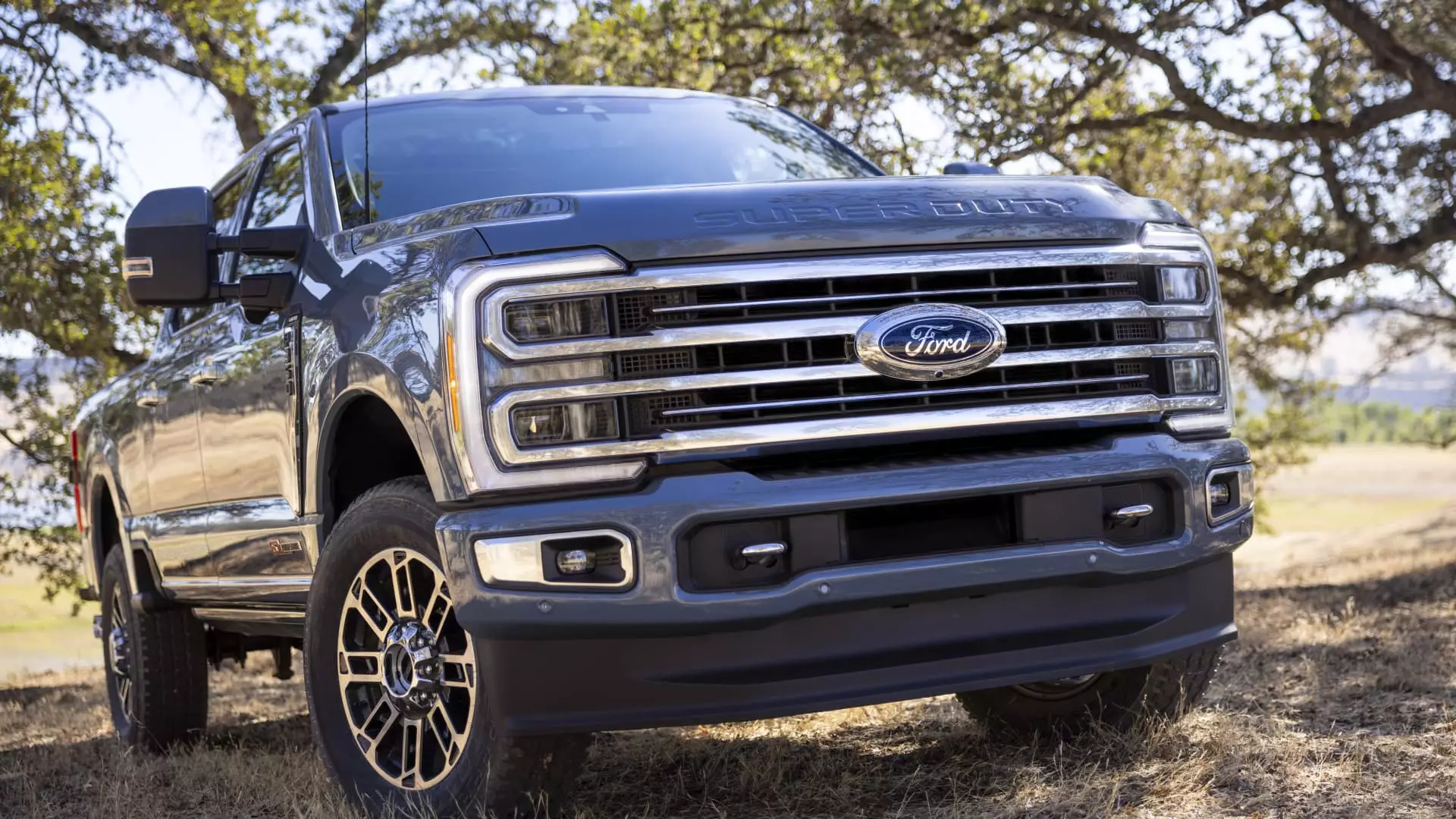Ford Motor Company recently announced its plans to expand production of its large Super Duty trucks to a Canadian plant, diverting from the original plan of converting the plant into an all-electric vehicle hub. This strategic shift involves investing approximately $3 billion, with $2.3 billion allocated to Ford’s Oakville Assembly Complex in Ontario, Canada. The remaining investment will be utilized to enhance production at supporting facilities in both the U.S. and Canada.
The decision to increase Super Duty production capacity signifies Ford’s commitment to meeting the growing demand for these vital vehicles. With the Canadian plant expected to be operational by 2026, it is projected to add around 100,000 units annually. Ford CEO Jim Farley emphasized the significance of Super Duty trucks for businesses and individuals worldwide, highlighting the need to enhance production capabilities to cater to the soaring market demand.
Ford’s initial plan to invest $1.3 billion in the Canadian plant for electric vehicle (EV) production, including a new three-row SUV, has been postponed to 2027. This change in strategy aligns with Farley’s assertion that full electrification of large vehicles like the Super Duty trucks may not be financially feasible. While Ford has intentions to “electrify” the next generation of Super Duty trucks, specific details regarding this transformation remain undisclosed.
The shift in production focus from EVs back to traditional Super Duty trucks underscores the company’s prioritization of profitability and growth. Farley’s Ford+ plan, which aims at maximizing Ford’s manufacturing footprint, has been reevaluated to adapt to changing market dynamics. Despite setbacks in the EV sector, Ford remains committed to producing the three-row EV at a later date, maintaining its long-term vision for electric vehicle adoption.
Ford’s journey towards electrification has been marked by financial challenges, with the EV unit reporting significant losses. In contrast, the Ford Pro commercial business, including Super Duty trucks, has demonstrated strong performance, underscoring the importance of balancing innovation with profitability. The evolving landscape of the automotive industry presents both challenges and opportunities for Ford, as it navigates the complexities of transitioning towards an electrified future.
Ford’s decision to expand Super Duty production at the Canadian plant signifies a strategic pivot in response to market demands and profitability considerations. While the company remains committed to electrification, the prioritization of traditional truck manufacturing reflects the need for a balanced approach to sustainable growth. As Ford continues to evolve its strategy and product offerings, it will be crucial to adapt to changing market dynamics and consumer preferences to thrive in an increasingly competitive landscape.

